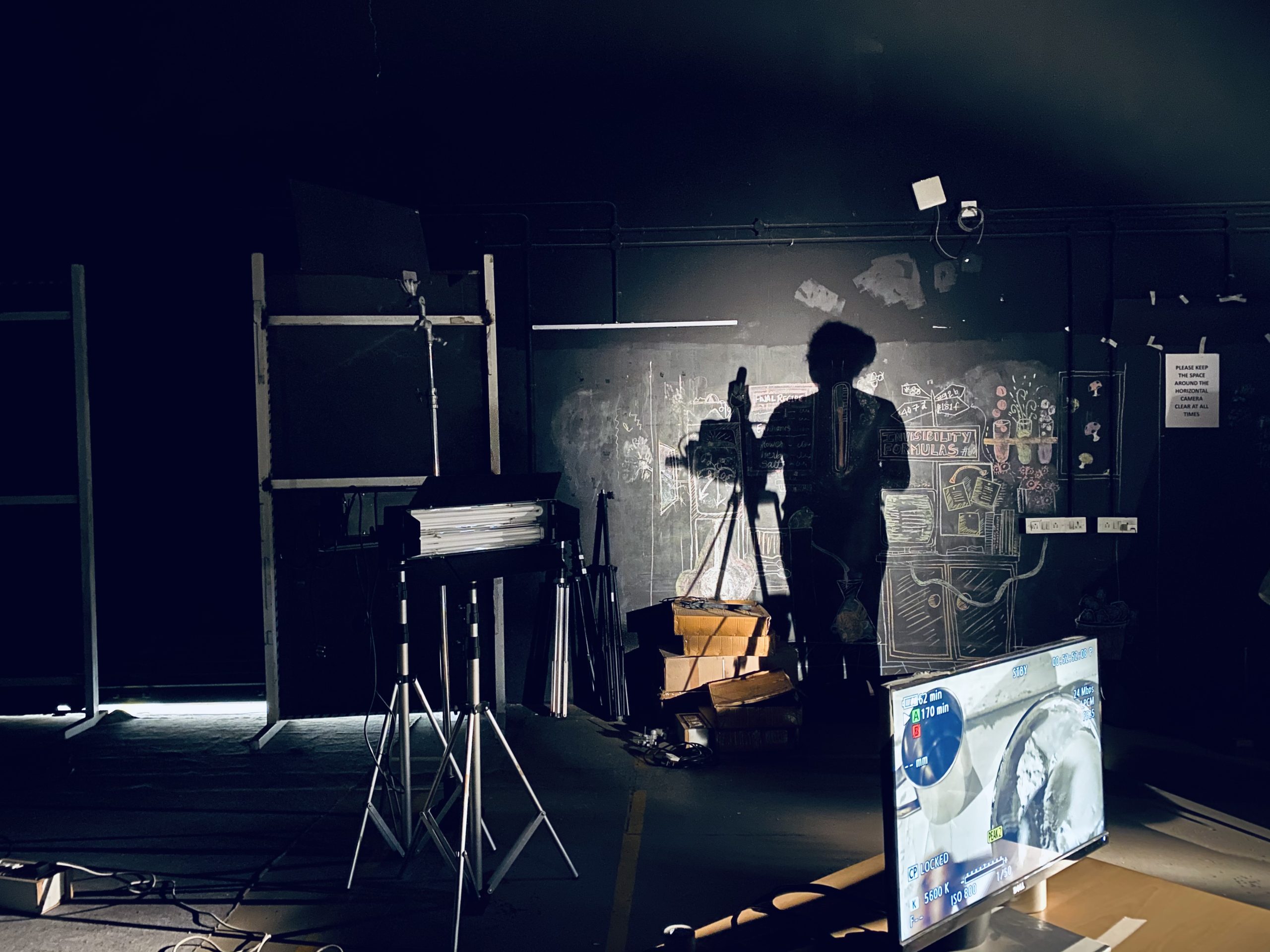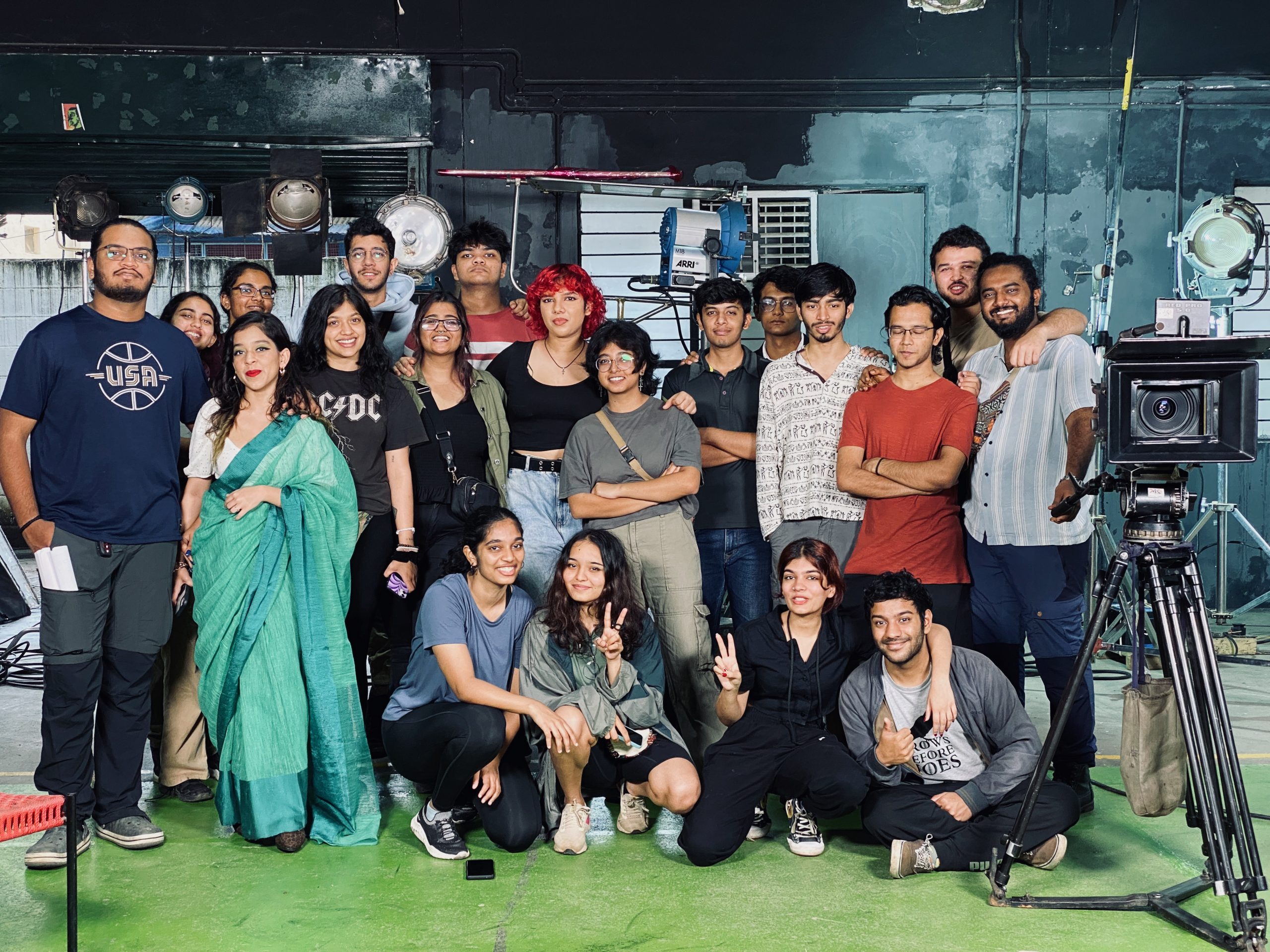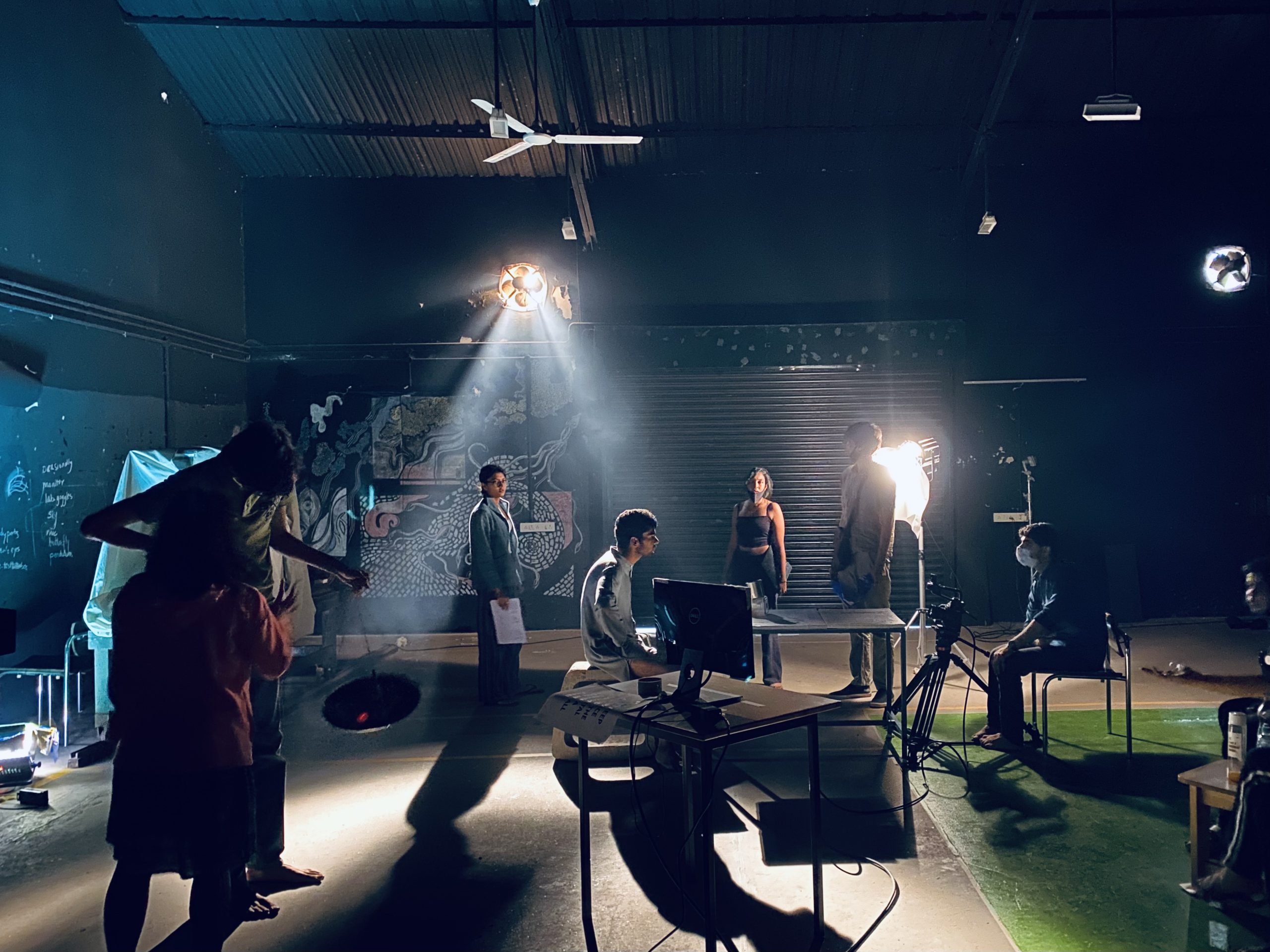Film
ABOUT THE PROGRAM
Film today is at the most exciting juncture in its history.
The big industrial film has begun to realign itself to changing expectations and new platforms of viewership. On the other hand, small and independent films that tell personal stories, question and investigate issues, or quite simply experiment with form and image have also found a larger global audience.
From fiction to documentaries, narrative to non-narrative, and silver screen to pixel screen, film has found diverse forms, contexts, and viewing environments, making it an enduring and viable art practice for the future. This understanding defines the four-year BFA programme in Film at Srishti Manipal.
The programme is designed to realise the dream of “camera stylo”, where a camera is wielded almost as easily and fluidly as a pen. While ready access to professional image and sound recording technology makes this possible, the programme aims to rediscover the spirit of experimentation and rigour of craftsmanship that marked cinema’s early years. Even as the medium continues to adapt and redefine itself in the digital age, the programme’s vision drives aspiring filmmakers to make the language of film their own.
CORE VALUES
- Exploring one’s creative vision and position
- Nurturing the process of imagination
- Developing cinematic sensibility
- Encouraging experimentation
- Pushing the boundaries of conventional cinema
- Hands-on engagement with production processes
COURSE STRUCTURE
The curriculum comprises of different ways of learning as follows:
- Foundation introduces students to basic principles and tools of Art, Design and Technology as methods, tools and processes. Read more >>
- Disciplinary Studios are learning spaces where students develop core disciplinary capabilities, while navigating a trans-disciplinary environment
- General Studies is a common and compulsory programme of study that integrates Humanities, Sciences, Maths, business and finance. Development and Policy Studies and also offers Languages (Spanish, French and German) Read more >>
- Interim is an immersive introduction to practice in new and emerging areas of art and design and environmental exposure
- Electives are of three kinds – this program allows students to expand their skills, develop the interests as well as provide opportunities for travel exchange
- Internship/Apprenticeship is compulsory work experience done over the summer-break between the 6th and 7th semester
- Project based learning involves the application and synthesis of capabilities acquired. Two projects, pre-thesis and thesis, is culmination of the 4-year undergraduate program, which allows for demonstration of an integration of values, positions, capabilities and practice. Read more >>
LEARNING APPROACH
The 4-year undergraduate course offers a broad perspective on the art and craft of filmmaking. The practices of watching, discussing, and making films inform each other and provide ample opportunities for building conceptual and reflective skills. Inputs in different aspects of filmmaking, such as camera, sound, editing and direction, equip learners to find tangible expression for their ideas. Intensive workshops experienced film practitioners conduct help arrive at a balanced understanding of film technique and aesthetics. The hands-on approach enables the learner to become thoroughly conversant with the film medium.
Engaging with different modes of filmmaking in fiction, documentary, and all that lies in between encourages aspiring filmmakers to discover their unique artistic expression.
CAPABILITIES
On successful completion of this undergrauate course in Film students will develop the ability for
- Watching, reading and writing about films critically
- Employing a range of research methods in generating insights and formulating positions
- Finding expression through image and/or sound
- Experimenting with form/technique/material
- Constructing narrative, meaning, moments
- Thoughtful creating of characters, situations, scenarios
- Using the possibilities of the filmmaking process to make decisions in planned and unplanned situations
- Sharing skills to work collaboratively as a team
- Realising ones creative intent through technique and craft
- Autonomy and self-direction in taking work ahead
- Production planning and time management
- Conceptualising and making a short film independently
FAQs
What will I learn in this course?
The course covers both conceptual and practice-based learning. You will be encouraged to watch, read and write about films and learn the techniques through continuous making. You will be exposed to different kinds of film genres like fiction, documentary, other forms of non-fiction and experimental film. In keeping with current trends most of the work will be on digital video.
Will I get to make my own film?
You will make your own work throughout the duration of the course, beginning with short exercises that gradually increase in scope and complexity. In the final year, you will make short films within the framework set by the institution.
Do I need to have my own equipment?
The school provides cameras, accessories, sound equipment, and edit machines to students for all college work. You may wish to have your own DSLR camera which will allow you to practice and experiment on your own, outside of class work.
In what way does this course at Srishti differ from other such courses?
The course at Srishti Manipal Institute places great emphasis on context-based work. The context could pertain to social, cultural and environmental themes or emerge from your own experiences and concerns. The program is designed to help you be a better learner and navigate your own learning within a multidisciplinary environment. There are good possibilities for exploring multiple media and image-making methods and design processes that can enrich your learning in the chosen discipline.
Am I eligible for a master’s programme after this course?
Yes, this is a 4-year professional under graduate/bachelor’s degree, which makes you eligible for higher studies in India and abroad. Our students have pursued further study in many universities and institutes worldwide.
Will I get a job after I graduate?
There is no formal placement cell at Srishti Manipal Institute but film graduates have typically found work with production houses, ad agencies, television producers, independent filmmakers, art practitioners as also in the development sector. Some also choose to freelance and make their own films.
What opportunities do I have after completing this course?
The above capability sets equip and prepare students for a wide range of career opportunities:
- Undertake the making of independent or commissioned short films
- Work in different capacities on any film or audio-visual production
- Work in any media organisation, including Television and Advertising agencies
- Specialise in a particular aspect of filmmaking
- Pursue higher studies in an art-related field




